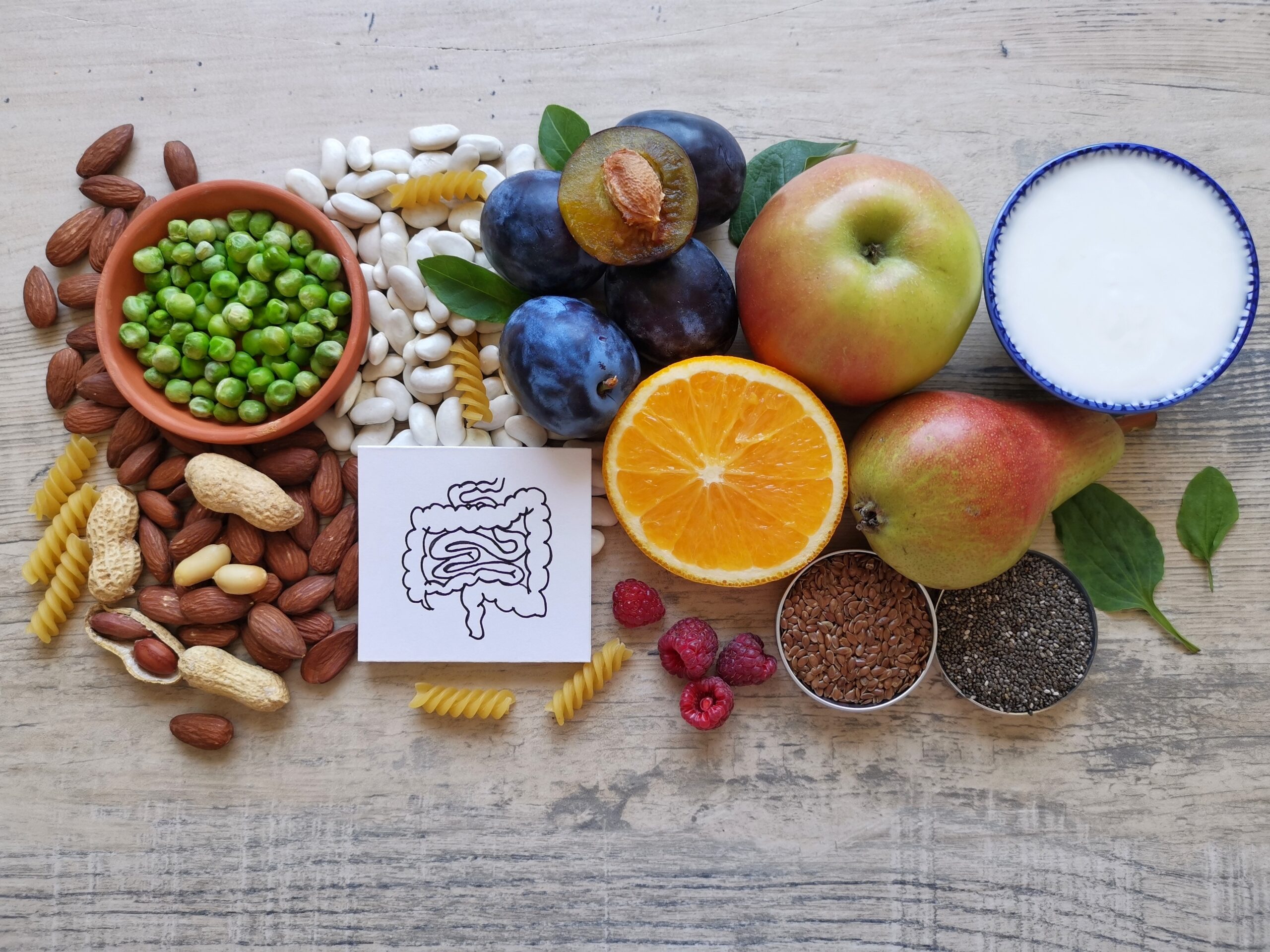Table of Contents

Enhancing your gut microbiome with the right dietary choices could be the key to boosting your immune system and overall health, potentially preventing chronic diseases and improving your quality of life.
At a Glance
- About 70% of your immune system resides in your gut microbiome, making gut health crucial for defending against pathogens and preventing illness.
- Fermented foods like yogurt, sauerkraut, and kimchi provide beneficial probiotics that support a healthy balance of gut bacteria.
- Fiber-rich foods act as prebiotics, feeding the good bacteria in your gut and promoting microbial diversity.
- Nutrients including vitamins A, C, D, E, zinc, and selenium are essential for proper immune function and can be obtained through a varied diet.
- Anti-inflammatory diets, particularly the Mediterranean diet, support both gut health and immune function.
Understanding the Gut-Immune Connection
Your gut is more than just a digestive organ—it's a complex ecosystem hosting trillions of microorganisms that directly influence your health. The balance of these microbes affects everything from nutrient absorption to brain function. Perhaps most importantly, this microbial community forms the foundation of your body's defense system. When this balance is disrupted, your immunity weakens, leaving you more susceptible to infections and chronic inflammation that can lead to various diseases.
"All disease begins in the gut," said Hippocrates over 2,000 years ago, a statement that modern science continues to validate. Today's research shows that a properly functioning gut microbiome supports immune cells that help identify and neutralize harmful pathogens while maintaining tolerance to beneficial bacteria and food particles. This delicate balance is heavily influenced by what you eat, highlighting the importance of dietary choices in maintaining optimal gut health.
https://www.youtube.com/watch?v=1sISguPDlhY
Essential Nutrients for Immune Support
Following the COVID-19 pandemic, interest in dietary approaches to strengthen immune function has surged. Research consistently shows that certain vitamins and minerals play critical roles in supporting immune responses. Vitamin A, found in colorful vegetables and liver, maintains the integrity of mucosal barriers that serve as your first line of defense against pathogens. Vitamin C, abundant in citrus fruits and many vegetables, supports various cellular functions of the immune system.
Vitamin D, often called the "sunshine vitamin," regulates immune function and reduces inflammation. While sun exposure helps your body produce vitamin D naturally, dietary sources include fatty fish like salmon and fortified foods. Zinc and selenium, found in nuts, seeds, and shellfish, support immune cell development and function. Deficiencies in these nutrients can significantly impair immune responses, making adequate intake through diet or supplementation essential for maintaining robust health.
https://twitter.com/NutritionwJudy/status/1848351491897405453
Fermented Foods: Probiotic Powerhouses
Fermented foods represent one of the most effective dietary additions for enhancing gut health. These foods undergo controlled microbial growth, creating beneficial bacteria that help restore and maintain a healthy gut microbiome. Regular consumption of fermented foods introduces diverse probiotic strains that can improve digestion, enhance nutrient absorption, and strengthen immune function. The variety of fermented options available makes it easy to incorporate these foods into your daily diet.
Yogurt with live cultures delivers Lactobacillus and Bifidobacterium strains that help regulate gut function and support immune responses. Traditional sauerkraut, the "sour white cabbage" of German origin, offers not only probiotics but also fiber that feeds beneficial gut bacteria. Kimchi, a Korean staple made from fermented vegetables, contains multiple probiotic strains plus compounds that may reduce inflammation. Kombucha, a fermented tea, provides organic acids and probiotics that support digestive health and immune function.
Prebiotics: Food for Your Beneficial Bacteria
While probiotics introduce beneficial bacteria to your gut, prebiotics provide the nourishment these microorganisms need to thrive. Prebiotics are typically non-digestible fibers that pass through your digestive system unchanged until they reach your large intestine, where they're fermented by gut bacteria. This fermentation process produces short-chain fatty acids that nourish colon cells, reduce inflammation, and create an environment where beneficial bacteria can flourish while discouraging harmful pathogen growth.
Foods rich in prebiotic fiber include garlic, onions, leeks, asparagus, bananas, oats, and apples. Garlic deserves special mention for its dual role in gut and immune health. Beyond its prebiotic properties, garlic contains alliin, which supports white blood cells in fighting viruses. Incorporating fiber-rich foods into your diet not only supports your gut microbiome but also helps regulate digestion, stabilize blood sugar, and maintain healthy cholesterol levels—all factors that contribute to overall immune function.
https://twitter.com/drmarkhyman/status/1866555453842268266
Anti-Inflammatory Dietary Approaches
Chronic inflammation underlies many health conditions and can significantly impair immune function. An anti-inflammatory diet focuses on minimizing processed foods, refined sugars, and unhealthy fats while emphasizing whole, nutrient-dense foods. The Mediterranean diet, rich in fruits, vegetables, whole grains, olive oil, and lean proteins, exemplifies this approach and has been extensively studied for its health benefits, including improved immune function and reduced inflammation.
Fatty fish like salmon, mackerel, and sardines provide omega-3 fatty acids that help resolve inflammation and support immune cell function. Colorful fruits and vegetables contain antioxidants that neutralize free radicals and reduce oxidative stress. Herbs and spices like turmeric, ginger, and rosemary add not only flavor but also powerful anti-inflammatory compounds to your meals. By adopting these dietary patterns, you create an internal environment that supports balanced immune responses and optimal gut function.
Sources:
https://ods.od.nih.gov/factsheets/ImmuneFunction-HealthProfessional/
https://www.healthline.com/health/10-gut-foods
https://www.gaucherdisease.org/blog/4-ways-to-improve-gut-health-naturally/
https://health.clevelandclinic.org/food-to-boost-your-immune-system
https://ods.od.nih.gov/factsheets/ImmuneFunction-Consumer/
https://www.eatingwell.com/article/8021156/foods-to-improve-gut-health-overnight/
https://physiciansallianceofconnecticut.com/blog/foods-to-improve-gut-health/
https://cdhf.ca/en/how-nutrition-can-support-gut-health-and-the-immune-system/
